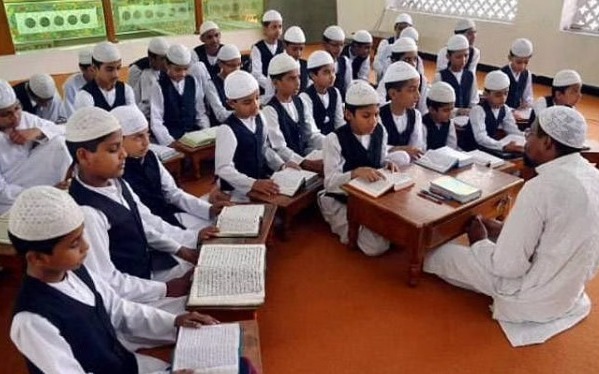
Around 24,000 madrassas in Uttar Pradesh are currently undergoing rigorous scrutiny amid allegations of receiving foreign funds. The investigation primarily focuses on determining whether these funds were utilized for illicit purposes such as “terrorism or coercive religious conversions.”
According to reliable sources within the Uttar Pradesh police, out of the targeted madrassas, a substantial 8,448 have been identified as operating illegally. A comprehensive report outlining their alleged illicit activities has already been submitted to the state government.
In the initial phase of the inquiry, authorities disclosed that approximately 30-40 madrassas underwent scrutiny, revealing that nearly Rs 100 crore were injected directly into these institutions. The ongoing investigation aims to trace the destination of these funds, with each transaction undergoing rigorous Know Your Customer (KYC) verification. Those who received the funds will be summoned to provide statements regarding their utilization.
The authorities have revealed that the funds reportedly originated from Europe and the Middle East, including Saudi Arabia. Officials have noted a rising trend of money being routed through London, possibly due to increased scrutiny on funds from the Middle East.
A source emphasized the need to scrutinize the authenticity of the entities transferring the funds, stating, “We are trying to find out who these people sending this money are. Their genuineness is under the scanner.”
Additionally, concerns have been voiced by authorities regarding the possibility of funds being routed through London by Pakistan’s Inter-Services Intelligence (ISI).
In recent years, the emergence of numerous madrassas along the Nepal border has drawn the attention of officials. Regions such as Maharajganj, Siddharthnagar, Shravasti, Balrampur, Bahraich, Lakhimpur Kheri, and Pilibhit, which share borders with Nepal, have witnessed a notable increase in the establishment of these educational institutions.




